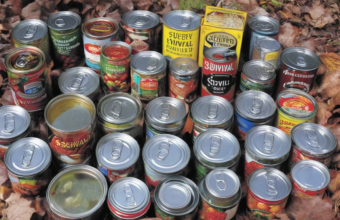Being Prepared for Disasters
Emergency preparation is very important and this includes being prepared for disasters. While no one likes to think that something bad will happen, the truth is that sometimes it does and you and your family will be much better off if you are prepared for this before it occurs.
So how do you go about being prepared for disasters? Here are some ideas:
- Be aware of potential disasters that can occur in your area
- Prepare your home for natural disasters and other problems
- Have an emergency escape plan such as fire exits and other plants
- Practice fire drills and family emergency escape plans
- Plan for where you will go in the event that you need to evacuate your area
If the event of a disaster, does your family know what to do? Do you have a plan for if you get separated? Where will you go? Do your children know who to call if something happens to the adults? These are all scary things to think about happening but important things to prepare for. As is often said, it’s much better to be prepared and never have to do it than to have a disaster occur and not be ready.
Have an Emergency and First Aid Kit
Every family should have at least one emergency first aid kit. If you have a large family, a large house or multiple family members, it may also benefit you to have more than one first aid kit.
You may also want to take the time to learn basic first aid and CPR. Classes are held in most local areas and you never know when the situation will arise where you need to know this.
Your first aid kit should include:
- Medical-grade vinyl gloves
- Poison ivy relief cream
- Burn relief cream
- Sunscreen, SPF of 30 or greater
- Antibiotic ointment, Polysporin® or similar
- Sting relief lotion or ointment, calamine or similar
- Box of sterile gauze pads, either 3″ x 3″ or 4″ x 4″
- Abdominal (ABD) or combine sterile pad, 5″ x 9″
- Rolled gauze of 2 sizes, 2″ x 4 yards and 4″ x 4 yards
- Bandages of assorted types: finger, knuckle, plastic, Telfa®, and general adhesive
- Sterile oval eye pad
- Small sharp scissors
- Tweezers with pointed tip
- Thermometers, oral and rectal (for babies)
- Elastic bandage, 3″ x 6″
- Instant ice pack
- Roll of adhesive tape, 1″ wide, may use plastic type if preferred
- Triangular bandages, 2
- Package of safety pins, assorted sizes
- Absorbent cotton balls, 1 box
- Diarrhea remedy, Pepto-Bismol or Kaopectate or similar
- Popsicle (craft) sticks or finger splints
- Antibacterial soap, liquid or bar
- Medicine dropper
- Water purification tablets
- Small bottle of bleach
- Sharp knife or multipurpose knife/tool
- Bottles of aspirin, ibuprofen, and acetaminophen
- Splint materials: thin boards 2-3′ long
- Cough syrup and throat lozenges
- Large plastic trash bag and several smaller, zip-closure bags
Your emergency kit should include:
- Flashlights
- Extra batteries
- Radio
- Emergency phone numbers
- Back up cellular phone if possible
- Blankets, sheets
- Fire extinguisher
- Supply of prescription medicines
Have Insurance whenever Possible
Do you have the proper insurance? While it’s difficult for some people to pay for expensive insurance to possibly never have to use it, you should also remember the expenses that could be involved if you are not properly insured.
There are many different types of insurance such as:
- Medical/health
- Life and death
- Automobile
- Home or renter’s
- Mortgage
- And more
Insurance will help protect your family financially should a disaster of some type occur. But it’s not enough just to have insurance. You also need to be sure your coverage is thorough, your premiums are paid on time and your policy remains up to date and that beneficiaries and other important members of the family know about your insurance policies. You should also carry copies of the insurance policies in a safe place in case something happens to the originals, such as a house fire.
Being prepared for disasters is one of the most important things you can ever do for yourself and your family. Will you be prepared if something unexpected happens to you?












